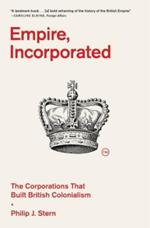Across four centuries and multiple continents, British colonialism was above all the business of corporations. Corporations conceived, promoted, financed, and governed overseas expansion, making claims over territory and peoples while ensuring that British and colonial society were invested, quite literally, in their ventures. The corporation was well-suited to overseas expansion not because it was an inevitable juggernaut but because, like empire itself, it was an elusive contradiction: public and private; person and society; subordinate and autonomous; centralized and diffuse; immortal and precarious; national and cosmopolitan-a legal fiction with very real power. Breaking from traditional histories in which corporations take a supporting role by doing the dirty work of sovereign states in exchange for commercial monopolies, Philip Stern argues that corporations took the lead in global expansion and administration. And, as Empire, Incorporated makes clear, colonialism’s legacies continue to raise questions about corporate power that are just as relevant today as they were 400 years ago. Challenging conventional wisdom about where power is held on a global scale, Stern complicates the supposedly firm distinction between private enterprise and the state, offering a new history of the British Empire, as well as a new history of the corporation.

Empire, incorporated : the corporations that built British colonialism
ISBN: 9780674299290
Format: Paperback
Publisher: Belknap Press
Origin: US
Release Date: September, 2025

